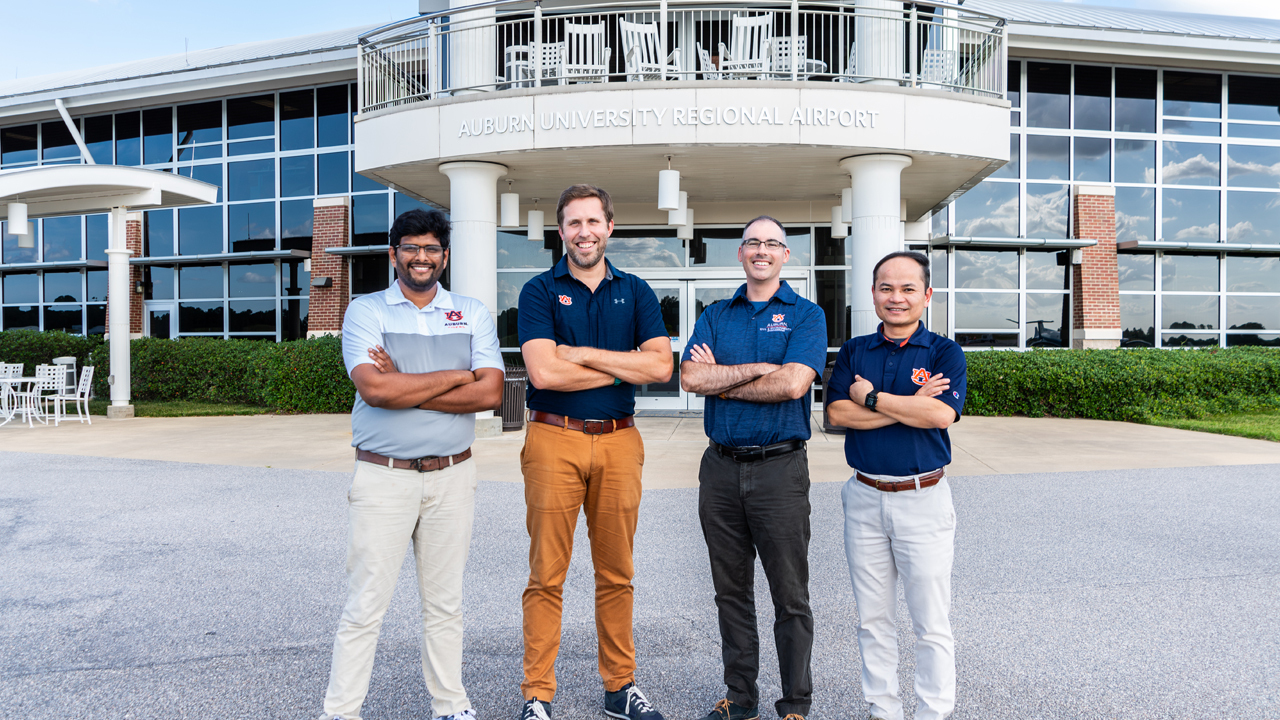Civil and Environmental Engineering assistant professor lands $1.25 million FAA grant
Published: Sep 18, 2023 9:00 AM
By Dustin Duncan
Mother Nature can wreak havoc at airports for those needing to fly, but how often do we think about how resilient the runways are after the weather takes a toll?
Benjamin Bowers, assistant professor of civil and environmental engineering (CEE), hopes to provide airports small and large under Federal Aviation Administration authority with a toolkit to assess the resilience of asphalt on airfield pavements.
Bowers is the principal investigator on a $1.25 million grant funded by the Federal Aviation Administration through the Airfield Pavement Technology Program cooperative agreement managed by the National Asphalt Pavement Association. The project “Synthesis and State of Practice and Research Needs for Airfield Asphalt Pavement Resilience.”
Smooth and crack-free asphalt on a runway is essential to prevent significant delays and transportation issues, affecting not just vacationers and business travelers, but also freight deliveries and disaster relief supplies.
This project utilizes a flexible resilience decision toolkit known as the Performance-based Resilience Evaluation Program (PREP), which was previously developed by Bowers and Jeff LaMondia, a CEE professor and team member. LaMondia and Ph.D. student Fernando Cordero have successfully applied the PREP framework in the past to evaluate flight operational delays caused by extreme rainstorm events, with funding from the Airport Cooperative Research Program (ACRP).
Bowers and his team will solicit data from airports throughout the United States about their vulnerability points for runways, taxiways and access roads. Additionally, the survey will ask what airports have done to protect against the elements in case of storms and other climate disasters.
After examining the surveys, Bowers’ team will select four airports for a site visit.
“We want to learn what people are already doing to solve problems that we may not have heard about yet,” Bowers said. “We want airport managers throughout the country to be able to identify vulnerabilities and figure out what’s the best cost-benefit option for their facility.”
Throughout these visits, his team will assess vulnerabilities and evaluate their risk of disruption by analyzing climate data. Bowers said he intends to utilize future climate models to project the climate in specific regions based on greenhouse gas emission scenarios.
Based on the results of potentially damaging weather, such as intense hurricanes, heavy precipitation or intense heat waves, Bowers' team can determine how likely the asphalt will experience distress or even failure and identify approaches to help reduce or eliminate that risk.
The goal is to collect as much data as possible from airport surveys and site visits to develop a toolkit to give to airport managers to do risk assessments and identify recommendations to mitigate or eliminate them. The project team will also propose revisions to FAA standards and circulars, as well as use existing tools, such as the FAA’s airfield pavement design software FAARFIELD, to identify ways to implement resilient design considerations.
The framework is not just applicable to asphalt, according to Bowers. He said while the project is focused on asphalt, airports can apply the PREP framework to compare resilience across multiple systems, including flight operations, passenger vehicle arrivals and departures and even delays generated from other airports. This knowledge allows airports to prioritize which countermeasures are the most cost-effective and beneficial.
“Airports, like any form of transportation, serve people beyond what we typically think about. It’s more than just getting to visit families for the holidays, getting to that work meeting, or delivering that package you ordered from across the country,” Bowers said. “Think about when there is a natural disaster — that’s how we fly in aid, medicine, people and just about anything else that’s needed to help. Airports are a key artery for that.”
Bowers and LaMondia are working on the grant with Nam Tran, assistant director for the National Center for Asphalt Technology (NCAT); Suri Gatiganti, research engineer for NCAT; University of New Hampshire Civil and Environmental Engineering Professors Jo Sias and Eshan Dave; AECOM and the U.S. Army Corps of Engineers.
Media Contact: , dzd0065@auburn.edu ,

Nam Tran, assistant director for the National Center for Asphalt Technology (far left), Benjamin Bowers, assistant professor of civil and environmental engineering (middle left), Jeff LaMondia, a CEE professor (middle right) and Suri Gatiganti, research engineer for NCAT (far right), are all members of a team to study the resilience of asphalt on airfield pavements.






